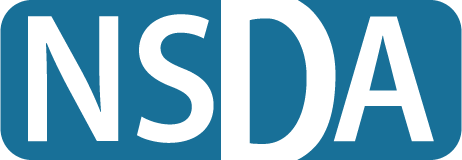By Katie Koebel, M.Cl.Sc.
In the often-noisy environment of a dental clinic, it’s easy to overlook the potential impact of sound on hearing health. However, understanding noise levels in dentistry is crucial for protecting both dental professionals and patients from the risks of hearing damage. With tools and equipment that can reach decibel levels high enough to cause hearing loss, awareness and preventative measures are essential.
In this article, we’ll explore noise levels commonly encountered in dental settings, the potential dangers they pose, and practical strategies to protect your hearing while maintaining a productive and safe clinical environment.
Understanding noise levels in dentistry
Noise levels can become hazardous very quickly. As a benchmark, regular conversation is around 60 dB (decibels). Any noise above 85 dB can cause hearing loss over a period of eight hours, while noises above 120 dB can cause immediate hearing loss.
The loudest noises in a clinical setting are:
- A turbine in used condition, cutting on a tooth: 91.9 dB;
- A micro motor handpiece, cutting on acrylic: 92.2 dB; and
- A suction pump, running free on low volume: 87.2 dB.
While dentists aren’t exposed to the top noise level from these tools for their entire workdays, damage can accumulate over time.
Daily protective practices
Some of these noises are easy to mitigate at the source. Proper tool maintenance, for example, can lower maximum decibel rating. A turbine in new condition cutting on a tooth produces a maximum of 78.8 dB.
Earplugs or canal caps (which are often connected by a string) can be good options for dentists who need to talk to patients while also considering their hearing. Standard earplugs can reduce noise levels by 20-25 dB (when looking at the packaging, the NRR [noise reduction rating] number is the number of decibels the product can lower noise by). Therefore, if wearing earplugs while using a micro motor handpiece, cutting on acrylic, the sound level would be reduced from 92.2 dB to around 72.2. For stylish options, there are many online stores that sell colourful, reusable earplugs.
When using loud equipment, be sure to spend time in a quiet area immediately after to lower your average level of noise exposure and give your ears a rest.
Monitoring your hearing health
Detecting hearing loss early is critical to maintaining your hearing and getting proper treatment. You can get free online hearing tests to let you know if you need to pursue an in-person appointment. Even if an online test doesn’t detect hearing loss, regular exposure to loud noises warrants regular testing to help detected changes — such as the presence of tinnitus, which is a ringing noise in your ears.
Educating the dental team
Emphasizing the importance of hearing protection within your clinic can help to preserve everyone’s hearing. Even people who aren’t using loud equipment but are frequently present in the room when it’s being used (e.g. dental hygienists) should consider wearing hearing protection while the equipment is active.
It’s common to think that because you aren’t exposed to loud noises for an entire workday, your hearing won’t suffer. However, understanding the importance of hearing health and getting regular hearing checks can help to improve your overall health outcomes.
Listen to your ears, protect your future health
Understanding and addressing noise levels in dentistry is essential for preserving long-term hearing health. While the nature of dental work often involves exposure to potentially harmful noise, there are practical steps that can be taken to reduce risks.
Regular maintenance of tools, the use of hearing protection, and strategic breaks in quieter environments can significantly reduce noise exposure. Additionally, regular hearing tests for dental professionals, including those not directly using loud equipment, can ensure early detection of hearing loss and prompt intervention.
If you are concerned about your hearing health, consider taking an online hearing test, or consulting with a hearing care professional for an assessment. By prioritizing hearing health, dental teams can protect their well-being and continue to provide high-quality care to their patients.
Katie Koebel, M.Cl.Sc., is the Senior Manager of Audiology at HearingLife, Canada’s largest group of hearing centres, with more than 350 locations across the country. HearingLife clinics use the most advanced hearing aid technology, clinical support, and diagnostic equipment. Katie is a hearing care professional registered with CASLPO and has been providing her clients with the best possible hearing health care with HearingLife for over 17 years.


